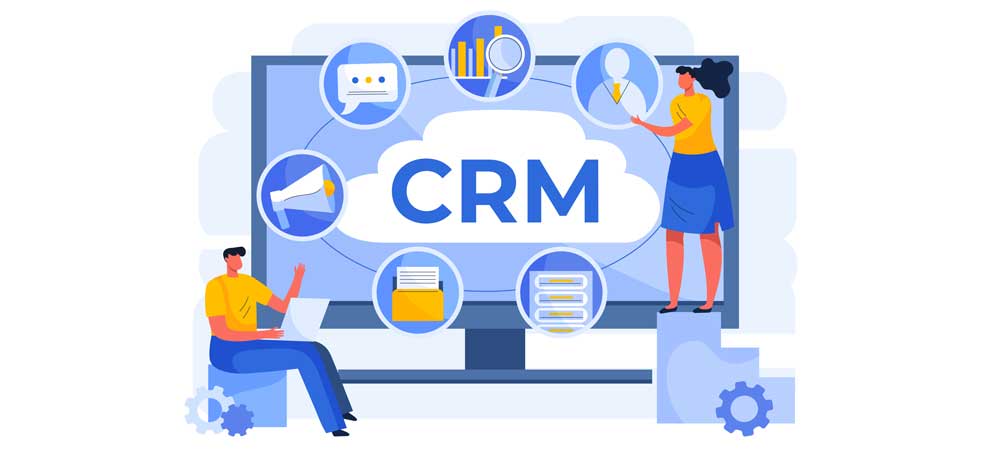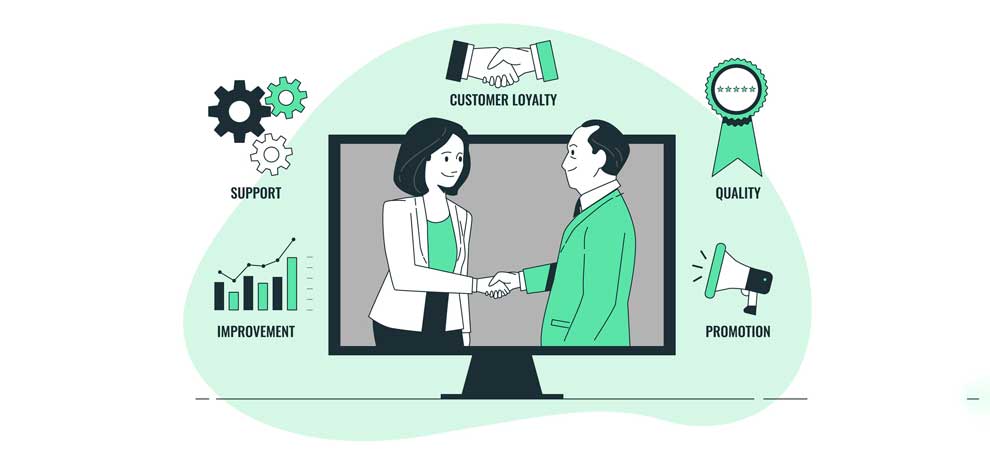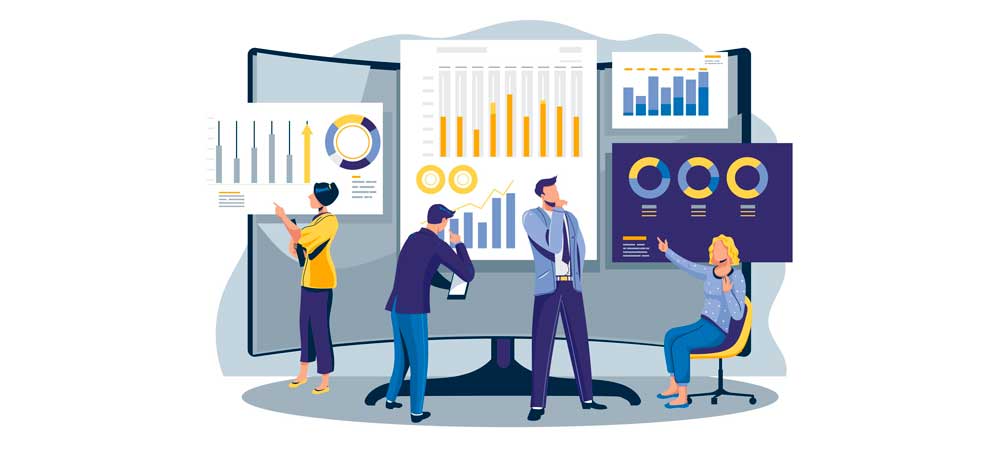Types Of CRM Software: Which One Is Right For Your Business?
October 27, 2022

What exactly are the different types of CRM software? CRM software is a double-edged sword. Think about it! You run a medium B2B-based business. Your client list consists of hundreds of names, many of which are your persistent clients. You anticipate – or rather hope – that this list will increase in the thousands over the next few years. However, you find that your current conversion rates are extremely low, and business growth is even slower than expected. Many promising leads fizzle out, on-the-hook prospects abruptly say that they’re no longer interested in doing business, and existing customers complain about the quality of service delivery. Urgh!!! What do you do?
CRM on one hand has useful tools for boosting revenue, creating targeted campaigns, and tracking KPIs so that you always have a space to improve. At the same time, numerous other solutions are available out there. Then how would you choose? Where should you start? Lots of questions like these might be reiterating through your mind! Don’t worry! We have got your back. In this article, we’ll go through the different types of CRM software so that you can get a better idea of what exactly you might need.
But before we jump right in, what exactly is CRM? A customer relationship management (CRM) system can help you keep track of all your customers while also attracting new ones. However, in order to get the most out from the types of CRM tools, you must choose the best options available that rightly fit your requirements.
A database, marketing, sales tools, and dashboards for tracking metrics are all standard CRM features. However, depending on the nature of your business, you may require a more specialized types of CRM tools to maximize efficiency.

What are the 3 types of CRM? Don’t worry! Here is a breakdown of the three main types of CRM systems to help you navigate the landscape:
- Collaborative CRM Systems
- Operational CRM Systems
- Analytical CRM Systems
The Three Main Types Of CRM Systems
Collaborative CRM Systems
It’s often seen that the marketing team, sales representatives, and customer service representatives are all in separate departments and hence often feel disconnected. In larger organizations, each of those departments is further subdivided based on factors such as geographic location, channels served, products emphasized, or skill specialties. However, in order to provide a consistent customer experience throughout the customer journey, you must be able to share information in real-time across the entire organization. Collaborative CRM (also known as strategic CRM) centralizes customer data so that marketing, sales, and service professionals have access to it. Breaking down silos is a major focus of collaborative CRM systems and it ensures that all teams have access to the same up-to-date customer data regardless of the department or channel.
Operational CRM Systems
Operational CRMs aid in the automation of a company’s processes for managing customer relationships. They provide tools for better visualizing and managing the entire customer journey even when it includes enormous touchpoints. One of the most important aspects of an operational CRM system is automation. Marketing automation, sales automation, and service automation relieve your employees of some of the work that they would otherwise have to do manually. This frees up their time for the more creative and personal aspects of their work which require a human touch. It also makes it much easier for growing businesses to continue to provide excellent service as they expand.

Analytical CRM Systems
Data analysis, the process of transforming data into something beneficial for your business, is an extremely tedious task. In fact, estimates suggest that more than half of the data collected by businesses is never used. That’s like owning Fort Knox but not having a way to access the wealth within. Hence an analytical CRM is the key to unlocking the vast amounts of data that you’ve accumulated. Analytical CRMs are primarily concerned with assisting you in analyzing your customer data in order to gain valuable insights. Large amounts of data can now be collected easily using digital tools and platforms.
An analytical CRM includes features that allow you to use the data you have to identify trends in how your customers journey. With that information, you can better understand which steps lead to the most successful sales, which increase customer retention, and which are the most common customer problems. Companies can use an analytical CRM to better understand how different customer segments interact with the company, what steps would increase customer retention and lead to sales success.
Closing Thoughts
Whether it is operational, analytical, or collaborative, a CRM adds important features and benefits to the process of managing the customer lifecycle. Some organizations specialize in one of these CRM types, but many do support all the three. Hence the best system for you can only be determined by your company’s unique circumstances.
Without a doubt, a strong company-customer relationship is critical to a company’s success. Companies of all ages want the most effective strategies for achieving positive growth and retention outcomes. Undoubtedly CRM-enabled business transformation has displayed consistent increases in ROI, customer retention, and loyalty. However, when surveying the market, it can be difficult to determine which platforms fall into which category. Well, be certain of one thing. Implementing the right system will help you attract, convert, retain, and serve your customers more effectively. So why wait!! Begin your CRM journey right away with Maxis CRM.
October 27, 2022
Popular Articles

“A data breach can happen to any company, but the damage it can cause to your customer’s trust and your company’s reputation can last for years.” Data leakage can be a major threat to businesses, leading to financial losses, reputational damage, and legal consequences. A Customer Relationship Management (CRM) system is a critical component of […]

Streamlining your business sales process is essential for any business looking to increase efficiency and improve sales performance. However, goals are critical for organizations as goals give first-hand information to employees about what the organization wants to accomplish. Having no goals to streamline sales process is like playing hockey with no goalpost. You can run […]

Are you tired of the same old hit-and-miss sales strategies? Do you want to know more about leveraging tools and technology to increase the sale productivity of your team? Did you know that investing in staff motivation and boosting morale could help you meet your targets? If not, then keep reading! In this article, we’ll […]

Let’s jump on the bandwagon! Accept it or not, growth is an essential aspect of our individuality and life. We have always heard people say, you must reach the stars. Well, from the springtime blooms to our businesses growing into titans or perhaps even making the Fortune 500, it is all definitely about reaching the […]

Explore The Secret To An Everlasting Customer Relationship With CRM Automation! Technology and its innovations are astonishing humankind every single day. Technology has without a doubt become part of everyday life and for businesses, it’s more than a boon. One of the noteworthy advantages of technology in business is that it allows you to automate […]

Customer relationship management is the most effective and efficient method of developing and maintaining strong customer relationships. However, CRM is not just about business; it is also about creating strong personal bonds between people and also following the best practices to set up a CRM. Yess! Just like the unbreakable bonds with your best friends! […]


